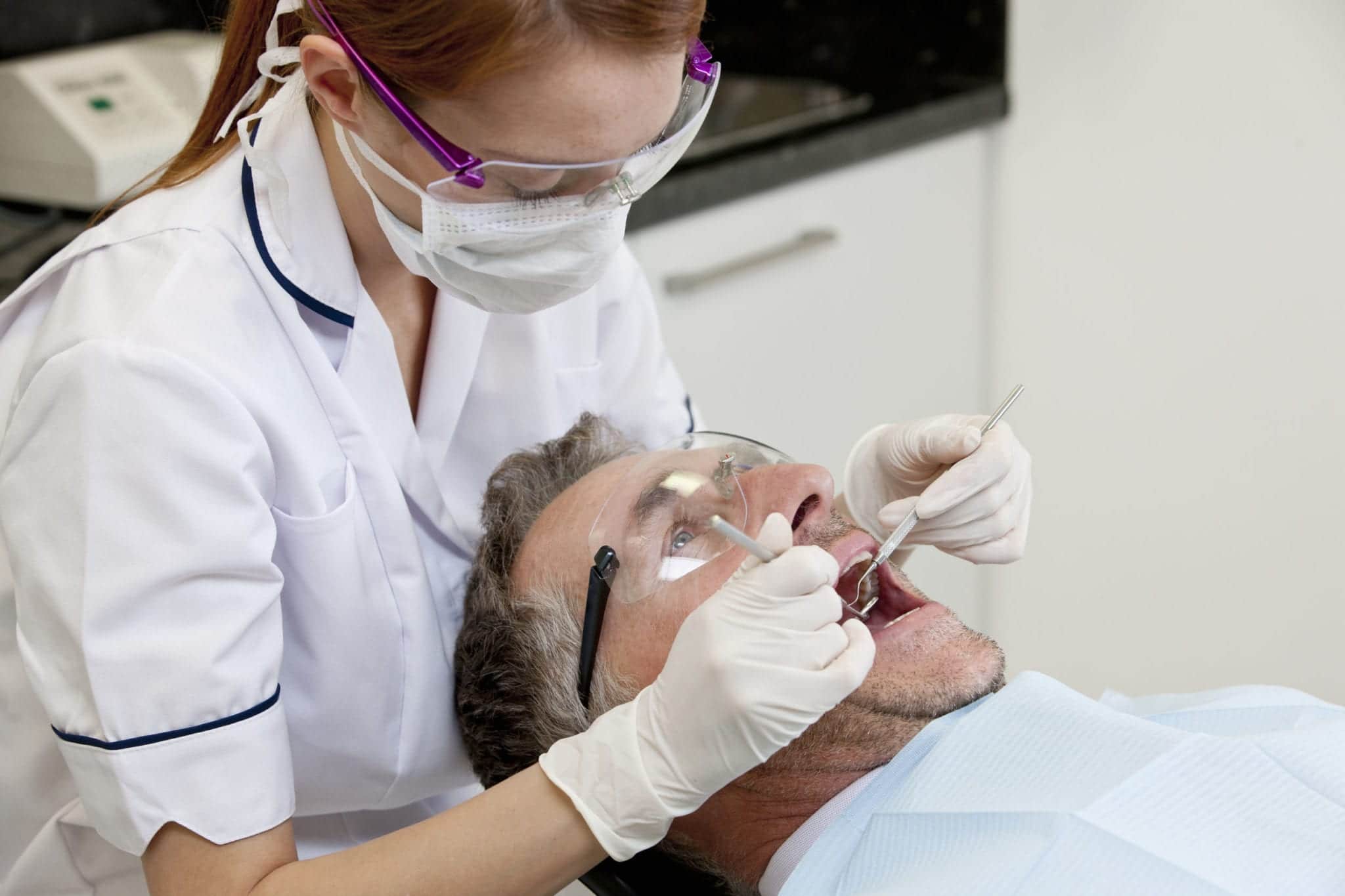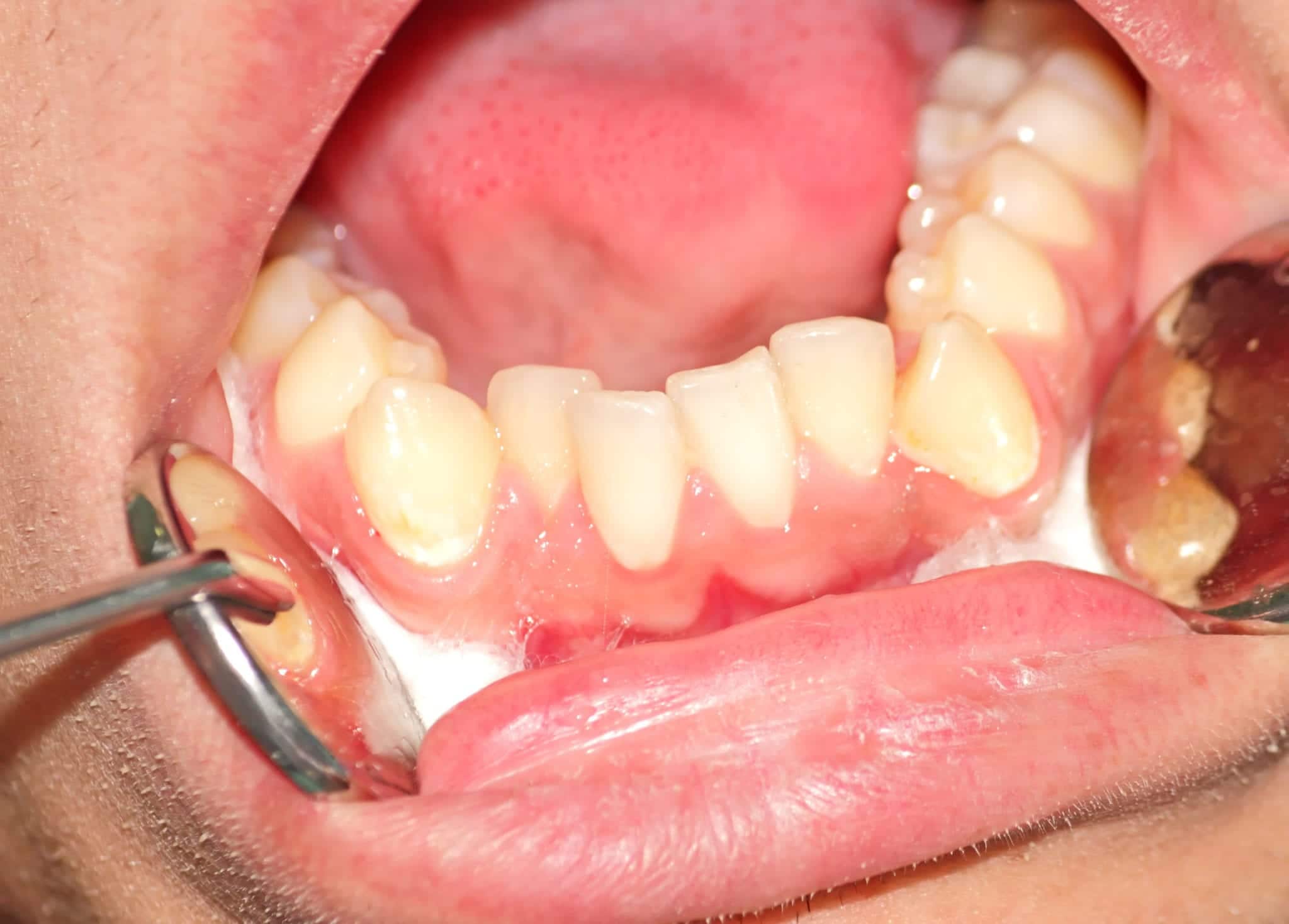
As you reach middle age, your teeth experience wear and tear that could impact your overall health. In this post, we’re going to detail some of the most common dental issues for people around 50 and what you can do about them.
Common Dental Issues for People Over 50
Americans are keeping more of their teeth for longer than ever, thanks to advances in dental care. However, as your teeth age, you need to be more aware of the common issues that can arise. Here are the most common dental issues for middle-aged adults:
Gum disease
If you notice blood on your toothbrush, your gums may be inflamed. This condition is called gingivitis, and it can lead to tooth and jaw bone loss if untreated. If your gums are red, swollen, or bleeding, make an appointment to see your dentist.
He or she will look at your gums to see if any have pulled away from the teeth. This advanced form of gingivitis is called periodontitis, a serious problem that can invite infection. To keep your gums healthy, practice good oral health habits and see your dentist every six months for a checkup and cleaning.
Root problems
As you age, your teeth roots can become exposed. They are softer and more prone to decay the older you get. You can prevent decay with regular brushing and flossing, and by adding fluoride rinses to your daily dental care routine. Your dentist can prescribe fluoride gel if you need more protection.
Keeping regular dental checkups is also important, because your dentist can monitor your mouth for early signs of root problems. If it’s been a while since you had an appointment, schedule one today.
Tooth decay
Tooth decay can be related to your diet. Choose lots of fruits and vegetables and cut back on carbohydrates and sweets. The extra fiber in produce is good for you and doesn’t stick to your teeth like carbs and sugar. If the buildup sticks to your teeth, it can turn into plaque and cause tooth decay and root issues.
Drinking plain water between meals can remove buildup from your teeth. Sugarless gum also helps. You may want to switch to an electric toothbrush for extra cleaning power. Brush at least twice per day and floss once per day for maximum protection.
Dry mouth
Often, middle age comes with more medications than you might be used to. Medications can cause dry mouth. You may have cracked lips, a dry or sore throat, a sticky feeling or metallic taste in your mouth, or you could experience bad breath.
Saliva contains elements that protect your teeth from decay, and without enough saliva, you may be at risk for losing teeth. Smoking and drinking alcohol also dry out your mouth.
To make more saliva, eliminate alcohol and nicotine. Sip water throughout the day and chew gum if it helps. Check with your dentist about prescription options to increase saliva production.
Crowded teeth

Your teeth continually shift over your lifetime. Even if you had braces when you were young, you may notice that your teeth are overlapping or that food is getting stuck in between your teeth more often. Crowded teeth aren’t only a cosmetic concern. They can lead to decay and loss of enamel, teeth, or bone.
Mention crowding issues to your dentist. You may receive a referral to an orthodontist, who can use different methods to straighten your teeth. A retainer, spacer, or possibly adult braces may be needed to solve your problem so you don’t risk tooth loss.
Worn surfaces
If you are used to eating hard foods or ice, you may be causing premature wear and tear on your teeth. Once enamel is worn away, it doesn’t grow back. You can keep worn surfaces from getting worse by eating softer foods.
Another reason for worn surfaces is called bruxism. If you grind your teeth at night, your dentist can order you a custom mouth guard to protect your teeth.
Oral cancer
The chance of developing oral cancer increases as you age. Every year, over 40,000 Americans are diagnosed with oral cancer, and about one in five will die from the disease. It’s essential to keep regular dental appointments so your dentist can watch for early signs of oral cancer.
The best chance of surviving oral cancer is early detection. Your dentist will inspect areas where cancer normally develops. If you have a lump in your mouth or a sore that won’t heal on its own, schedule an appointment today.
Dental Care for You at Every Stage of Life

Losing your teeth is not inevitable. With proper care and regular dental appointments, you can head off the problems that lead to gum disease, tooth loss, and bone loss.
If it’s been a while since you last saw a dentist, don’t hesitate to reach out to us. We’ll be happy to talk to you about the many different ways we can help your smile and your overall oral health.






